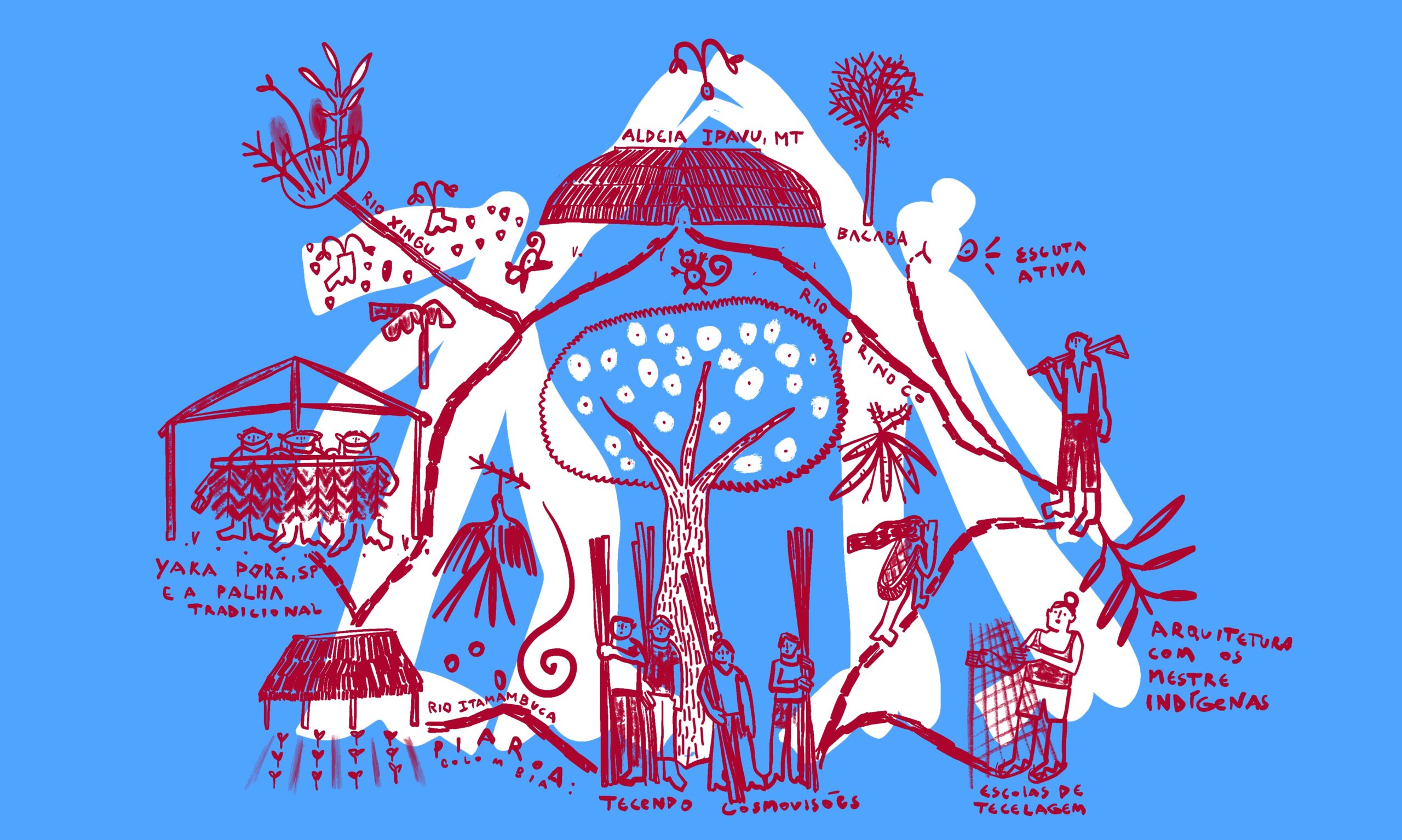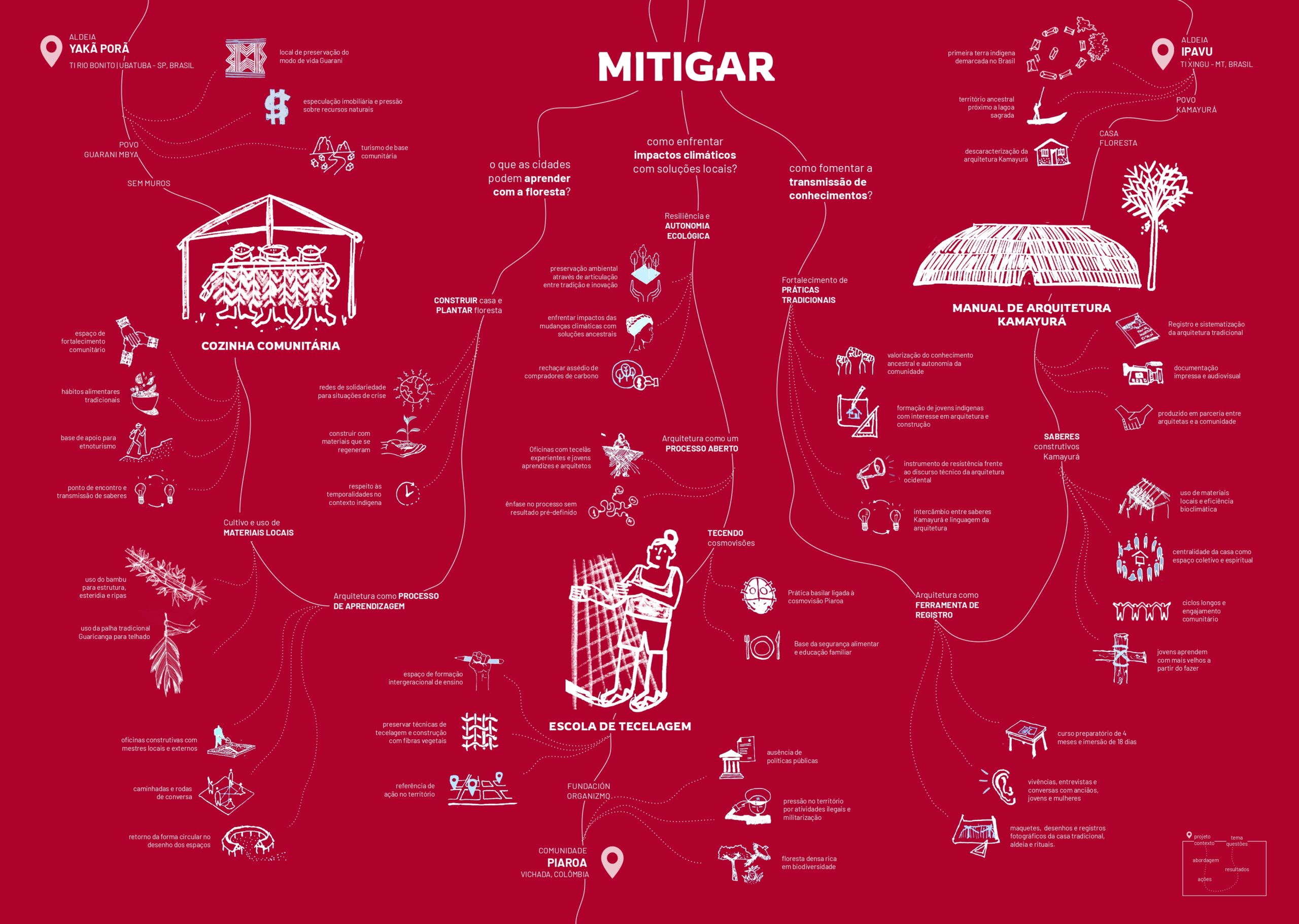The Envolvimentos (Involvements) fostered an open dialogue with social movements and diverse territories, converging on the exhibition of the 14th São Paulo International Architecture Biennial, which runs from September 18 to October 19 at OCA in Ibirapuera Park. Architects and leaders from villages, terreiros, riverside communities, and peripheral neighborhoods jointly explored architectures for inhabiting a heated world in debates that deepened the exhibition's central ideas.
Participants involved in projects across diverse territories and contexts addressing issues such as coexistence with water and floods, heritage preservation, forest protection and sustainable management, urban agriculture, mechanisms for enabling low-impact lifestyles, and the recognition of nature as a subject of rights were invited to participate in the dialogue. These are ways of inhabiting, building, perceiving, participating in, and transforming the territory.
2nd Engagement – Mitigate
The second meeting focuses on mitigation and the appreciation of Indigenous ways of living, connected to local knowledge and the landscape. It also highlights the mapping of traditional knowledge and the promotion of intercultural gatherings and courses.
Casa Floresta
Sao Paulo, SP, Brazil
The Casa Floresta Association is a consulting and research center for architecture, urban planning, art and graphic design projects, which involves a network of indigenous and contemporary knowledge with the aim of strengthening traditional cultures and revitalizing territories where architecture and the forest coexist in balance. In addition to the Kamayurá Architecture Manual, Casa Floresta provided technical support for the Yudja Architecture Manual (Tuba Tuba Village – TIX, Mato Grosso) and, in partnership with the Architecture and Biosphere Platform of Escola da Cidade (SP), the Guarani Architecture Manual (TITenondé Porã).
Ana Maria Gutierrez
Fundación Organizmo
Cundinamarca, Colombia
Founder of Fundación Organizmo, an organization that fosters the exchange of knowledge and experimentation focused on social, cultural, and ecological regeneration. A pioneer in low-impact construction and alternative technologies in Colombia, she works at the intersection of education, ecological restoration, and intercultural dialogue. Her projects strengthen cultural identity, social cohesion, and the well-being of rural communities.
Sem Muros
Sao Paulo, SP, Brazil
A network of architects working to strengthen their practice through architectural and educational projects, disseminating and expanding access to social and constructive technologies that promote the recognition of available resources and their potential for creating and caring for spaces. Architecture is understood not as an object but as a process. They advocate for an architecture that is socially, environmentally, culturally, and economically integrated.
Image authorship:
Image 1 – Gustavo Caboco – Download the image here
Image 2 – Guanabara Studio – Download the image here
INVOLVEMENTS
TECHNICAL SHEET
Curatorship and mediation: Marcella Arruda and Marina Frúgoli
Production: Julia Delmondes
Interns: Matheus de Sousa and Yasmin Guerra
Graphic Records: Guanabara Studio and Gustavo Caboco



